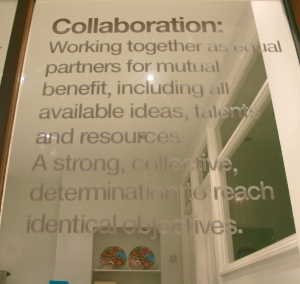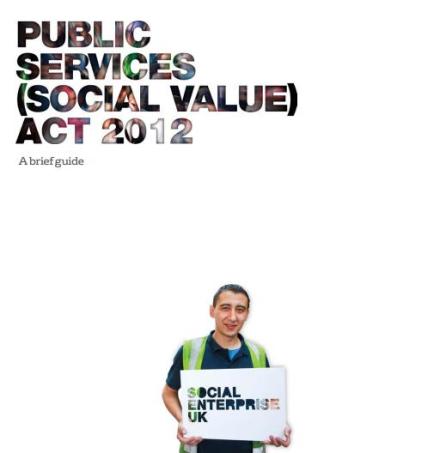Lambeth has set out its stall to become a cooperative council by 2014 and to transform the way it works in order to achieve this. One of the most important distinguishing features of this vision is to establish a fundamentally different relationship between citizens and the local authority – one based on collaboration, reciprocity and cooperation.
Changing things is tough, anyone working in large organisations or in the business of social change knows this all too well….of course it’s possible, but it can be a slog. One of things that helps creative thinking is to disrupt normal patterns of behaviour or thinking – causing us to question ‘normal’ ways of working and shakes us out of our pre-conceptions about business as usual.
We started to think about how we could begin to disrupt our normal approach to engaging residents in discussions, to develop a different, more ‘cooperative’, conversation.
The result is the Work Shop.
Lambeth Council has taken a short term let on a vacant shop on West Norwood High Street to set up the Work Shop. Over the next few weeks we will be trying to reach out to the people who live, work and visit the area and inviting them to join us for a cup of tea, a conversation and more as we explore the possibilities to work better together.
Three days a week – including some evenings and weekends, so as many people as possible are able to pop in – we will be running a programme of talks, hosted conversations and workshops on a wide range of topics. Some will be led by council officers, some by public sector partners and others by local voluntary and community groups. You can find out more about what’s going on here. But in addition to these more ‘formal’ elements, there will be plenty of more informal opportunities to engage.
We don’t expect everyone to want to come to a workshop, at least not at first….the Work Shop has installations of things going on in the area, inspirational examples of what can be achieved through collaboration, and space to capture people’s ideas of how things might be changed for the better. We’ll also be doing some asset mapping – gathering community perspectives on the services, buildings, people, talents, ambitions and passions that the local community has and values. This will be crucial in helping to inform what happens in the future and is part of a much wider shift in how Lambeth, as a Cooperative Council, views its citizens and communities.
A shop on the high street in one part of the borough for a few weeks is not, by any stretch of the imagination, a panacea for the myriad challenges we need to overcome in order to realise the vision of the Cooperative Council. Rather, it is an experiment in the art of the possible…an attempt to test out a new way of working with citizens, which we can learn from and apply to other parts of the organisation in the future.
We are not content to sit in the Town Hall and pump out laudable policy documents about how things will be different in the future. The Work Shop takes the conversation out into the community, changes the rules of engagement and, we hope, provides an opportunity for a more creative and meaningful conversation about what the Cooperative Council could be.
If you’re in the area, pop in for a cup of tea and a chat. If not, then we’ll be posting regular updates as we go along.



 Posted by tobyblume
Posted by tobyblume 



